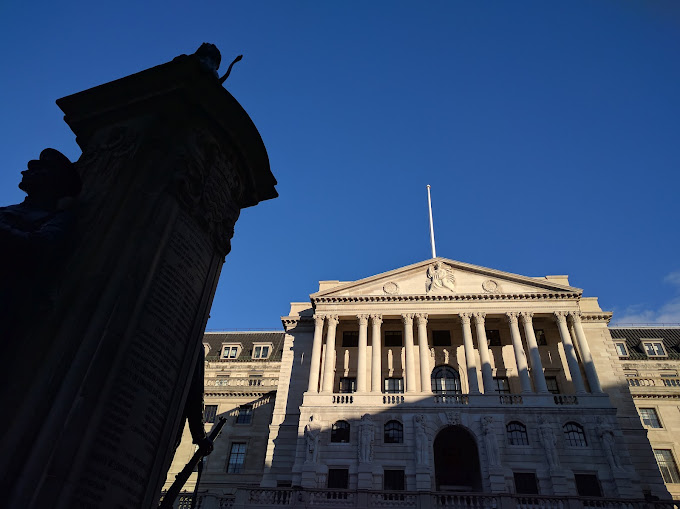Bank of England maintain rates at 0.25 Percent, CPI crosses 2 point level to reach 2.3 Percent after three years

MG News | May 11, 2017 at 05:18 PM GMT+05:00
The Bank of England’s (BoE) Monetary Policy Committee (MPC) set the policy rate at 0.25% in order to meet the 2% inflation target in a way which helps to sustain growth and employment. At its final meeting on 10th May, the Committee voted by a majority of 7-1 to maintain Bank rate at 0.25%.
The MPC observed that at the time of United Kingdom’s monetary policy referendum on European Union membership, the right path on deciding monetary policy relies on evolution of demand, potential supply, the exchange rate and therefore inflation.
Aggregate demand slowed in Q1 2017, this slowdown appears to be concentrated in consumer financing sectors, reflecting past Sterling’s past depreciation on household income and spending. The committee said that consumption growth in the overall market will continue will be slower in the near term. In MPC’s forecast, weaker consumption this year is largely balanced by rising net trade and investment. Within net trade; UK exports increased by 2.6% in 2016 Q4 and imports increased by 0.4% in Q4. UK exports are projected to grow modestly in 2017, but by a little more than projected in February, consistent with the pickup in survey indicators of export orders and deliveries in Q1.
Sterling appreciated by 2.5% between the February and May Inflation Reports, although it remained 16% well below its November 2015 peak.
Business investment fell over 2016 as a whole and by 0.9% in Q4. The Bank’s Agents report that heightened uncertainty was the primary cause, in part as companies postponed larger investment decisions until they became more certain about the outlook following the Brexit vote.
Over recent years, wage growth has remained below past averages, with whole-economy pay growth likely to have slowed to 2.3% in 2017 Q1. That is weaker than the 2.9% projected in the February Report and reflects slower-than-projected growth in both regular pay and bonuses.
CPI inflation was 2.3% in March, having been below the 2% target over much of the past three years. The cost of oil makes up around a third of the cost of retail fuel and changes in oil prices tend to be passed through to consumer prices much more quickly than those of other imports. In sterling terms, oil prices have fallen by 8% since the February.
MPC highlighted some key judgments and risks in their May Report
- Higher import prices weigh on real incomes and household consumption growth
- UK trade will be supported by the past depreciation of the sterling exchange rate and the expected pickup in global growth
- Investment and productivity growth pick up but remain below longer-term average rates
Related News
| Name | Price/Vol | %Chg/NChg |
|---|---|---|
| KSE100 | 138,597.36 256.32M | -0.05% -68.14 |
| ALLSHR | 85,286.16 608.38M | -0.48% -413.35 |
| KSE30 | 42,340.81 77.13M | -0.03% -12.33 |
| KMI30 | 193,554.51 76.19M | -0.83% -1627.52 |
| KMIALLSHR | 55,946.05 305.11M | -0.79% -443.10 |
| BKTi | 38,197.97 16.53M | -0.59% -225.01 |
| OGTi | 27,457.35 6.73M | -0.94% -260.91 |
| Symbol | Bid/Ask | High/Low |
|---|
| Name | Last | High/Low | Chg/%Chg |
|---|---|---|---|
| BITCOIN FUTURES | 117,670.00 | 121,165.00 117,035.00 | -1620.00 -1.36% |
| BRENT CRUDE | 69.23 | 70.77 69.14 | -0.29 -0.42% |
| RICHARDS BAY COAL MONTHLY | 96.50 | 0.00 0.00 | 2.20 2.33% |
| ROTTERDAM COAL MONTHLY | 104.50 | 104.50 104.50 | -0.30 -0.29% |
| USD RBD PALM OLEIN | 998.50 | 998.50 998.50 | 0.00 0.00% |
| CRUDE OIL - WTI | 66.03 | 67.54 65.93 | -0.20 -0.30% |
| SUGAR #11 WORLD | 16.79 | 17.02 16.71 | 0.05 0.30% |
Chart of the Day
Latest News
Top 5 things to watch in this week
Pakistan Stock Movers
| Name | Last | Chg/%Chg |
|---|
| Name | Last | Chg/%Chg |
|---|




 Weekly Forex Reserves
Weekly Forex Reserves